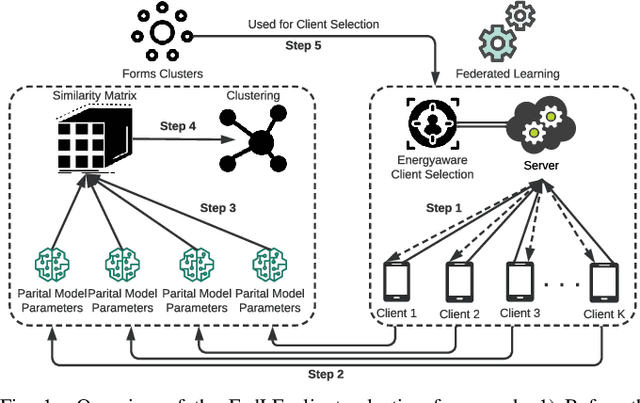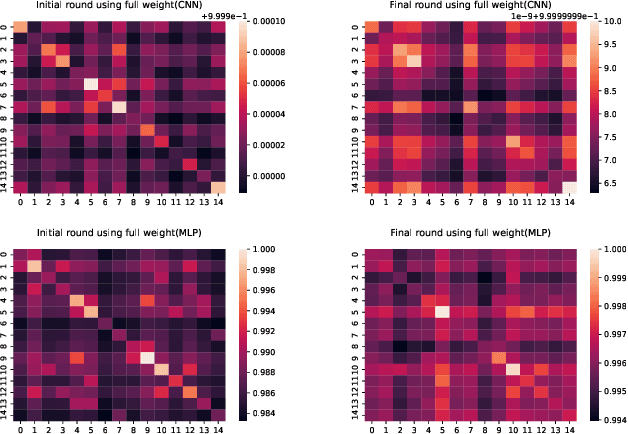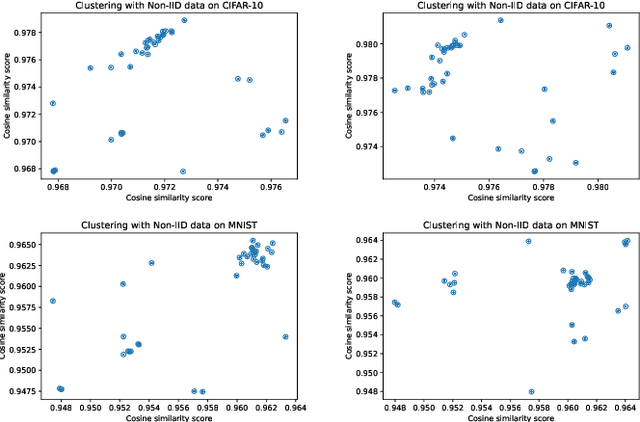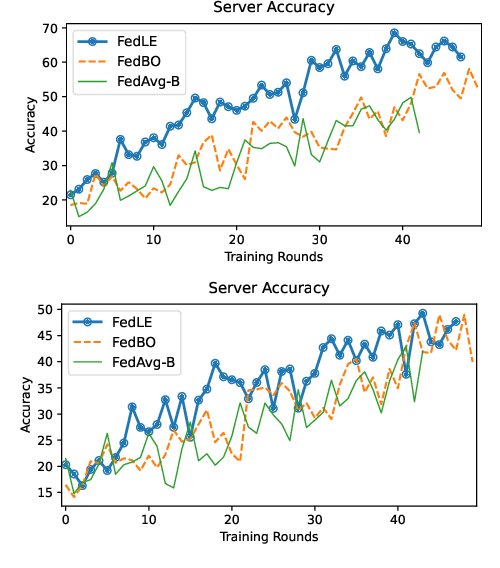FedLE: Federated Learning Client Selection with Lifespan Extension for Edge IoT Networks
Paper and Code
Feb 14, 2023



Federated learning (FL) is a distributed and privacy-preserving learning framework for predictive modeling with massive data generated at the edge by Internet of Things (IoT) devices. One major challenge preventing the wide adoption of FL in IoT is the pervasive power supply constraints of IoT devices due to the intensive energy consumption of battery-powered clients for local training and model updates. Low battery levels of clients eventually lead to their early dropouts from edge networks, loss of training data jeopardizing the performance of FL, and their availability to perform other designated tasks. In this paper, we propose FedLE, an energy-efficient client selection framework that enables lifespan extension of edge IoT networks. In FedLE, the clients first run for a minimum epoch to generate their local model update. The models are partially uploaded to the server for calculating similarities between each pair of clients. Clustering is performed against these client pairs to identify those with similar model distributions. In each round, low-powered clients have a lower probability of being selected, delaying the draining of their batteries. Empirical studies show that FedLE outperforms baselines on benchmark datasets and lasts more training rounds than FedAvg with battery power constraints.
 Add to Chrome
Add to Chrome Add to Firefox
Add to Firefox Add to Edge
Add to Edge